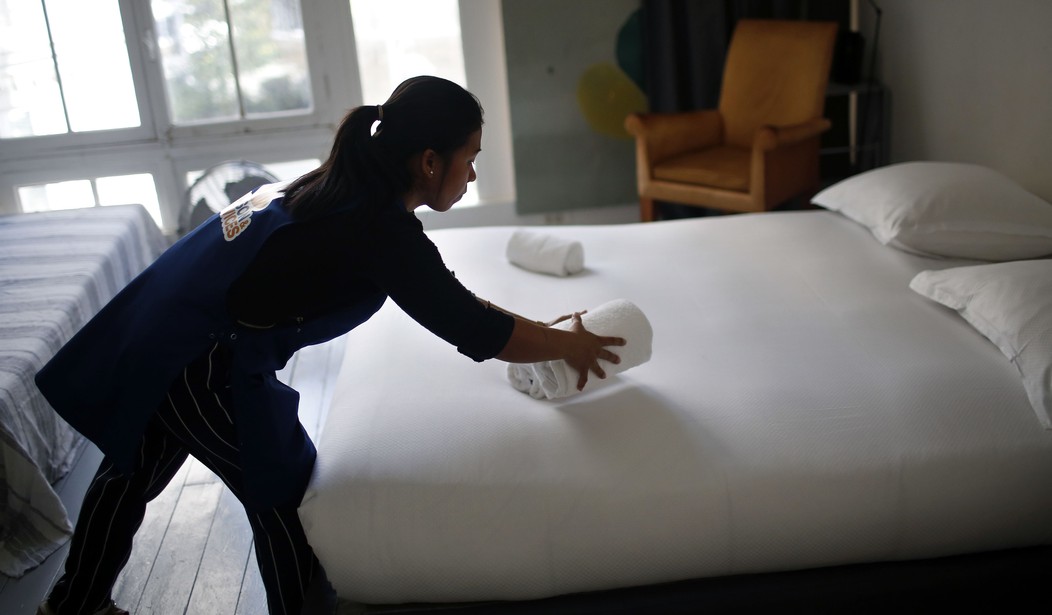Last month the Washington, D.C. Council voted unanimously in favor of a bill that has the potential to substantially restrict Airbnb and other short-term rentals in the District. The bill, which must pass a final vote (expected November 13th) before being officially approved, creates new licensing requirements and imposes new limits on who can rent out their spare rooms or homes and for how long. Most significantly, the legislation would only permit hosts to offer short-term rentals at their primary residence and to rent out their property for a maximum of 90 days a year while not present at their home.
In short, the D.C. Council is trying to find a solution for those who complain that short-term rentals create negative externalities. But the most effective solution for those affected by these externalities may not be to regulate them—instead, those negatively affected by Airbnb should be compensated.
The bill attempts to address the concerns of a coalition of community activists, hotel lobbyists, and hotel-worker unions. The groups calling for increased restrictions complain that Airbnb reduces the housing supply for long-term tenants and thus raises housing prices, has allowed commercial hotel operators to skirt regulations and taxes, and disrupts communities and neighborhoods with an influx of noisy strangers.
Economists Kyle Barron, Edward Kung, and Davide Proserpio examined the impact of short-term rentals on housing prices and rent and found that, though the effect is not zero, it is small: a 1 percent increase in Airbnb listings causes a 0.018 percent increase in rents and a 0.026 percent increase in house prices.
Hotels contend that Airbnb has allowed commercial operators to circumvent taxes and health and safety regulations. Browse through some of the postings on Airbnb and it is clear that these commercial operators aren’t fictitious. But a close look at the research used to justify the regulations shows that commercial operators are not widespread: over 90 percent of entire home rentals in D.C. are offered by hosts with only one listing.
Recommended
Finally, some District residents complain about Airbnb and the strangers it brings into their neighborhoods and apartment buildings. These residents’ concerns about congestion, noise, and safety are probably overstated, but not unfounded. In one egregious case, for example, a homeowner in Dupont Circle was renting his house out for large parties, including a concert with rapper Ja Rule.
Parking, noise, and land-use ordinances and regulations are attempts to create public expectations about behavior that vary across space. The expectations that are created are both on and off the books. While the norms in Dupont Circle create a quiet and peaceful neighborhood, someone moving into fraternity row at George Washington University should expect a different decibel level and neighborhood flavor.
Problems arise when people want to alter these legal and social expectations. Hosting a Ja Rule concert in Dupont Circle violates legal and social norms of the neighborhood. Currently someone who wants to alter legal and social expectations can either break the rules or lobby for legal change. But I propose a third option: buy the right to impose change.
People who live next door to the concert, or even just a typical Airbnb, may not like the noise and strangers, but what if they got paid for the disruption? Currently, a discontented neighbor’s only option to address their complaints is to ask the city government, through the police or enforcement of zoning laws, to use force. Instead, property owners should have the right to rent on Airbnb providing they appropriately reimburse their neighbors for any disruption or inconvenience.
This sort of rights exchange has resolved past disruptions. Single family neighborhoods often resist dense apartments even though such construction is necessary to keep housing costs reasonable for new residents. In Northern Virginia the transformation from single family homes to high-rise apartments and condos was facilitated by developers paying homeowners’ associations much more than market value to accept density.
The opportunity for exchange allowed the land use to change by compensating those who had initial property rights. Though short-term rentals are on a smaller scale, the principles remain the same. Whether someone wants to rent their house on Airbnb or host a Ja Rule concert they should have the right to do so as long as they properly reimburse their neighbors for the externalities they create.
Peter Van Doren is editor of the quarterly journalRegulation and a senior fellow at the Cato Institute, where David Kemp is a research associate.

























Join the conversation as a VIP Member